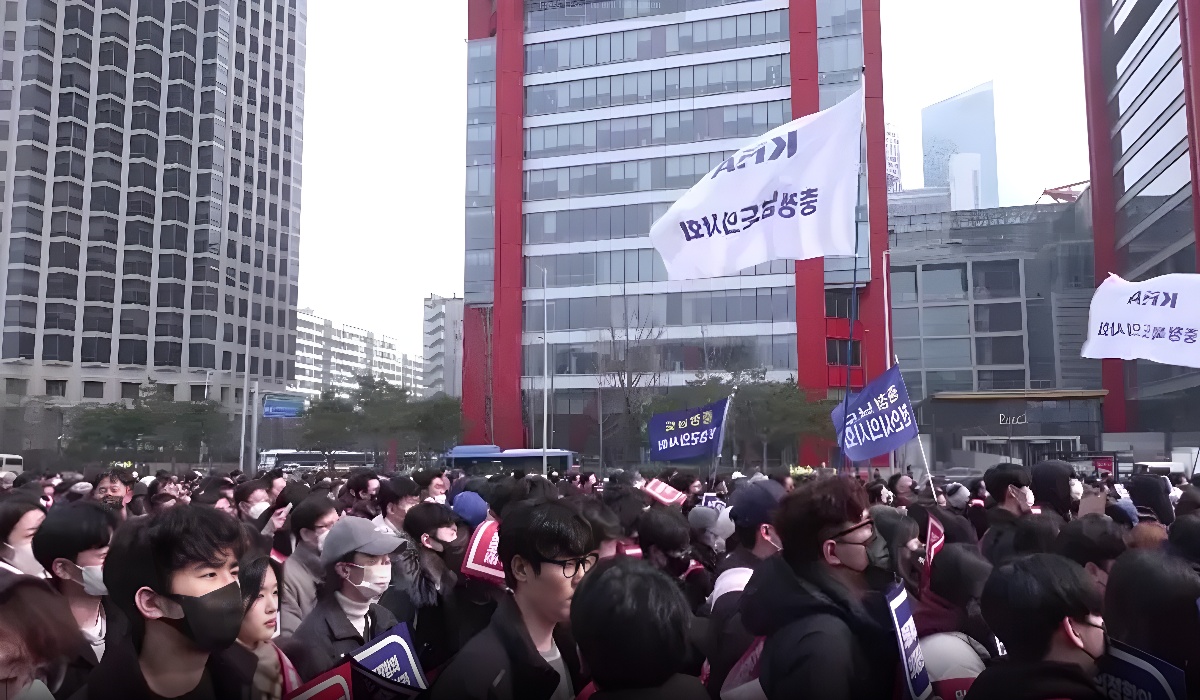Image Credit, Martin Lowe CGTN Seoul
In a display of solidarity, thousands of senior doctors and health service members gathered in western Seoul on Sunday to voice their unequivocal support for the junior doctors who have been on strike for the past four nights. The demonstration aimed to draw attention to the challenges faced by junior doctors and the broader issues plaguing the South Korean health service.
While the exact number of participants remains unclear, the sheer size of the demonstration underscored the urgency and gravity of the situation. Organizers had called for a significant show of support, and it appears they have received it. The striking doctors, resolute in their cause, emphasized that their actions were not just for their benefit but for the future of the entire South Korean health service.
The government, however, has taken a stern stance against the striking doctors, escalating its response by initiating legal proceedings against 13 junior doctors. The government asserts that these legal actions could result in the revocation of their medical licenses unless a resolution is reached promptly.
Senior doctors present at the demonstration rallied behind their junior colleagues, expressing their unwavering support for the cause. Dr. Choi Jeong Ryul, a senior doctor, noted, “Junior doctors are reasonable people, but they don’t want to work in a country where their voices aren’t heard. The government has the key to solve this.”
Joo Soo-Ho, a member of the Korean Medical Association Emergency Committee, disputed the government’s claims of a doctor shortage, deeming them groundless. “We are protesting today because we believe expansion under current conditions could lead to a financial burden and the collapse of an already deteriorating healthcare system,” Joo remarked in an interview with Martin Lowe CGTN Seoul
The general public has largely been on the side of the government, expressing concerns about the potential consequences of doctors taking collective action. However, events like the massive demonstration in Seoul aim to provide a platform for doctors to articulate their perspective and underline their assertion that this struggle extends beyond the immediate concerns of junior doctors.
The dispute between the government and the medical professionals reflects a broader tension within South Korea, as the healthcare system grapples with challenges that threaten its stability. The striking doctors argue that their fight is not merely about wages or working conditions but about safeguarding the future of healthcare in the country.
As legal proceedings loom over the junior doctors and tensions escalate, the nation watches with bated breath to see if a resolution can be achieved that addresses the concerns of both the healthcare professionals and the government, ensuring the long-term viability of South Korea’s health service.









